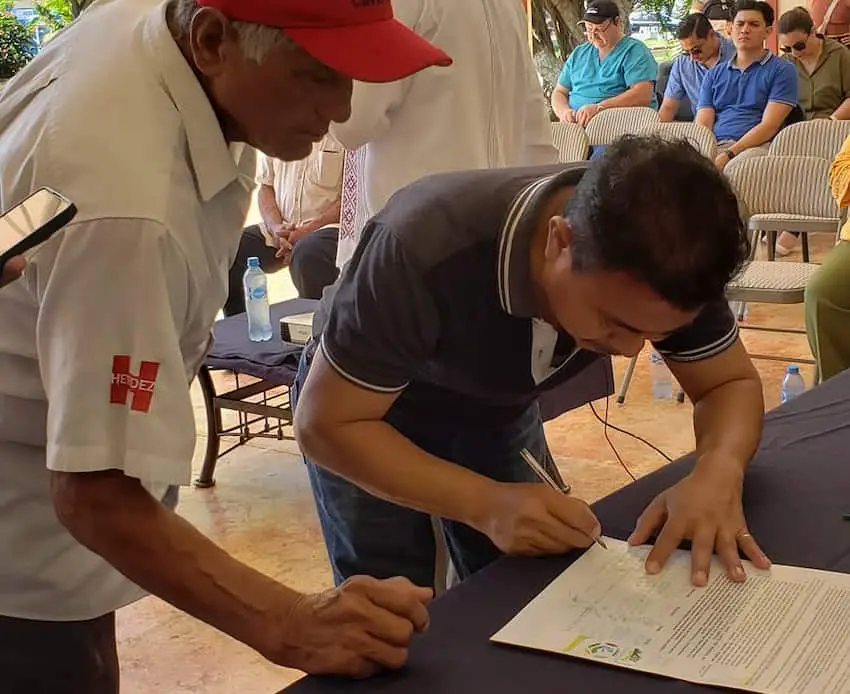Quintana Roo residents are proposing a collective injunction against a local water supplier after a report revealed that the state has the highest drinking water rates in Mexico.
A study entitled “Drinking water services in Quintana Roo 1980-2023: The truth in numbers,” published by analyst Juventino Castilo Pinzón in December, shows that the average domestic water bill in Quintana Roo reached 716 pesos (US $42.27) in 2022, compared to a national average of 88 pesos (US $5.20).

Drinking water rates in Quintana Roo have increased above the National Consumer Price Index (INPC) since 2012, the study found, adding up to a total of 21.5 billion pesos (US $1.27 billion) in overcharges from 2011 to date.
In response to the findings, León Lizárraga Cubedo, president of the Institute of Public Administration of Quintana Roo (Iapqroo), launched a petition to gather signatures of those in favor of freezing the current rates and demanding local water companies improve services to consumers.
Iapqroo proposed filing a collective injunction against the Drinking Water and Sewerage Commission (CAPA) and water company Aguakan, demanding they pay back the accumulated overcharges. The institute alleges that 17 billion pesos (US $1 billion) of these charges have gone to Aguakan.
Lizárraga said that the companies’ unfair billing practices were damaging the local economy and disproportionately affecting the poor. He also criticized local authorities for failing to enforce Article 115 of the Mexican Constitution, which requires municipalities to take responsibility for water, drainage and sewage services.

“CAPA must disappear … so that each municipality provides the service through a public body with functional, operational and financial autonomy, led by citizens,” he said.
After the report’s publication, the Quintana Roo state government canceled Aguakan’s contract to supply drinking water to the Benito Juárez, Isla Mujeres, Puerto Morelos and Solidaridad municipalities. The company responded by filing an injunction, arguing that in 2014, then-governor Roberto Borge extended this contract until 2053. Aguakan continues to provide drinking water services while the lawsuit is heard.
The Mexican Institute for Competitiveness (IMCO) think tank has previously raised alarms about the high disparity in water costs across Mexican states. In August, it published a list of Mexican states with the highest and lowest minimum monthly tariffs for domestic water services. Quintana Roo’s were the highest, at 172.86 pesos (US $10.21) per cubic meter, while Morelos’ were the lowest, at 0.04 pesos (US $0.0001) per cubic meter.
The institute called for a new state water tariff system coordinated at the national level to reduce regional price disparities, address water scarcity, and guarantee funds to maintain and improve water infrastructure.
With reports from Poresto, Noticaribe and El Economista
